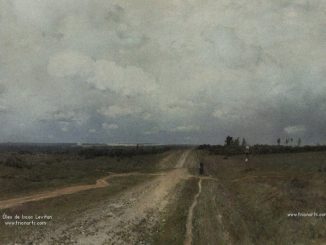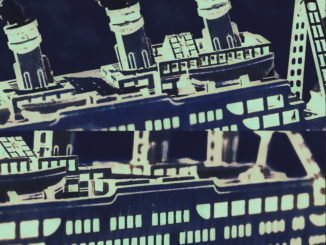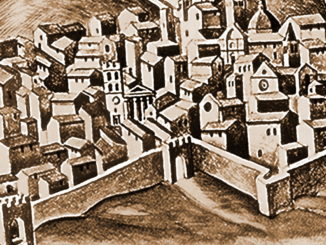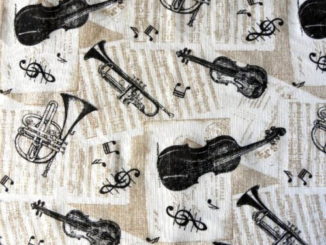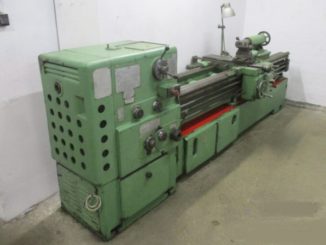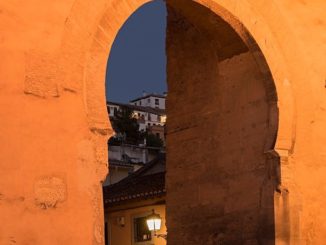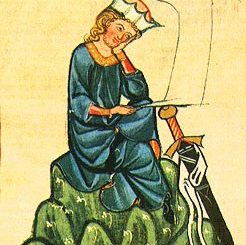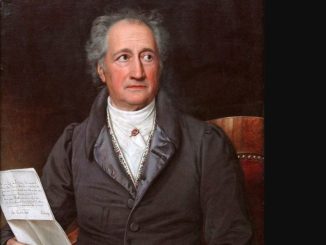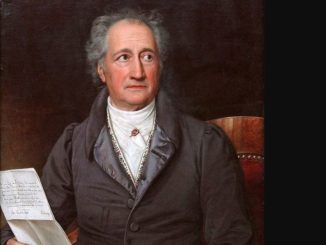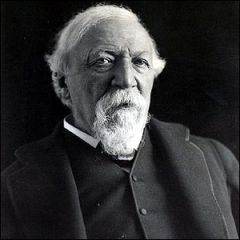
ROBERT BROWNING
ANDREA DEL SARTO – A HIBÁTLAN FEST?
( Andrea Del Sarto – The Faultless Painter )
– Rossner Roberto műfordításában –
1. De most már tán ne is veszekedjünk
2. Kicsit légy elnézőbb, Lukréciám
3. S minden kívánalmad szerint leszen.
4. Orcád fordul felém… vajh szíved is?
5. Majd dolgozom barát barátjáért;
6. Megfestem témáját, ahogy kéri,
7. Tartván határidőt és árszabást,
8. S a pénzt e kis kézbe csapom, midőn
9. Ha újra nyúl kezemért gyengéden…
10. Ó, én kielégítem majd – holnap,
11. De néha fáradtabb vagyok már, mint
12. Hinnéd. S ma fáradtabb, mint más napon,
13. Így hát, egy pillanatra leülnöm
14. Engedj, az ablakhoz. Fogd meg kezem,
15. Hadd bámuljam kissé Fiesolét,
16. Csak mélázzunk, mint házasok akár,
17. Legyünk csendben e csendes estén át.
18. Holnap talán dolgozni fölkelek.
19. Vidáman, frissebben, mint bármikor,
20. Legyen tehát így! Holnap oly boldog
21. Leszel! Kezed lágy: egy asszony maga,
22. Enyémre, mint férfi-mellkasra dől;
23. Ne szánd múló időnket, sem azt, hogy
24. Ülnöd kell mind az öt képünkhöz még –
25. Modellen spórolunk veled – tehát
26. Ne mozdulj, így maradj, kígyótest?
27. Szépségem! Hogy tudtad átszúrni ezt
28. A legtökélyesebb fület? S még gyöngy
29. Belé; Te édes Holdacskám! Hold vagy,
30. Akárki bámulhat, s magáénak
31. Tarthat, és felteszem: e hold szintúgy
32. Fordul, s visszanéz… nem kevésbé… így
33. Kedves, s mégis: senkié! – mosolyogsz?
34. Nézd csak, már kész a képem; ezt hívjuk
35. Mi festők „ A mi harmóniánk”-nak!
36. Ezüst-szürkés, langy félhomály, az „ÉN”,
37. S a „TE” – fölcserélhet?ek… mikor
38. Még büszke voltál rám! (ez már a múlt…)
39. S éltem, reményem, művészetem – én
40. Fiesoléhoz hozzátompítom.
41. Harang kondul meg kápolnánk tornyán,
42. Kolostor-fal nyúlik az út mentén,
43. Fáktól zsúfolt kertjét elhagyta már
44. Vecsernye-szóra minden szerzetes.
45. A nappalok kurták, ősz mindenütt.
46. S mintha formát öltenének dolgok:
47. Látom magam, munkám; mivé válnom,
48. S mit tennem kell: darabka szürkület…
49. Szerelmem, Isten kezében vagyunk!
50. Mily furcsa élet, mit ránk kényszerít;
51. Szabadnak tűnsz? – lazán tart béklyód – s mert
52. ő tette ránk bilincsét; hagyjuk ott!
53. Nézd itt e kis szobát – fordulj csak el –
54. Mindaz, mi mögöttünk már! – ugye nem
55. Érted, s nem érdekel művészetem…
56. De hallhatod, ha összesúgnak ők:
57. „Az ajtónál azt a rajzot láttad?”
58. – Ez már igen, Szerelmem! Így legyen!
59. „Nézd azt a Madonnát! Ezt nevezem!”
60. Rajz-ceruzám már tudja mindazt, mit
61. Tudok, látok. S mire szívem mélyén
62. Vágyom, ha vágyok még egyáltalán –
63. Teszem könnyű kézzel: tökéletes?
64. Nem kérkedem tán – ítéld meg magad.
65. A múlt héten legátusunk is így
66. Nyilatkozott, de ezt mondták róluk
67. Frankhonban is. Könnyű ez, nincs vázlat,
68. Előtanulmány – mindezen rég túl
69. Vagyok, csak úgy festek – sok álmodik
70. S küzd érte, ám hiába – húsz ilyet
71. Számolhatnék meg ujjadon – el sem
72. Hagyván a várost – nem tudod, mennyit
73. Szenvednek, hogy csak egy akkora kép
74. Készüljön, mit te szoknyáddal elkensz ,
75. Erre ha libbensz, figyelmetlenül.
76. S mégis: „keveset dolgozik” – mondják
77. (tudom kik, nem számít), „kevés a kép”.
78. Tudod, Lukréciám: a kevés – több,
79. Ha Isten fénye lángol föl bennünk,
80. S mert ingerült, töppedt agyukkal, vagy
81. Túlfűtött szívvel dolgoznak ők, míg
82. őszinte, kézműves kezekkel én.
83. S mi nékem zárva: mennybe jutnak ők
84. Földhözragadt munkáik által, s ott
85. Helyet foglalnak, majd visszatérnek,
86. S mesélni, mit láttak, nem képesek.
87. Én itt ülök, de művem mennyeibb!
88. Ó, a hevesvérűek! Csak dícsérd
89. őket, s forr vérük; szidd, s forr akkor is.
90. Magamból, s önmagamnak festek én,
91. Tudom, miért és mit teszek; hozzám
92. Vád s dícséret egyként föl nem érhet.
93. Mondják: Morellonk kontúrja hamis,
94. Hogy elhibázottak színei. – És
95. Akkor mi van? Másutt jó, rendezett;
96. Na és? – Hegyként magaslik mind fölött!
97. Célod legyen elérhetetlenül
98. Magas! Menny, mely elérhető: minek?
99. Szidják ezüst-szürkés, lágy tónusom;
100. De én tudom, mi kell, s hogy érem el.
101. S mégis: mily talmi hívság a tudás!
102. „Bár volna kettő belőlem, fejünk
103. átlátná a világot.” – nem kérdés.
104. A híres ifjú képét látod ott?
105. Az urbinóié, öt éve halt
106. meg (másolatban Giorgio Vasari
107. elküldte nekem) s elképzelem őt;
108. A lelkét belefesti pápának,
109. S királynak: némi égből jött erő -,
110. S üdv-ért: a piktúrán túl és fölött.
111. A kar rosszul van föltéve, s amott
112. A rajz-vonalban megbocsátható
113. Hibák. – De ez csak test: a lelke, úgy
114. Mondván: igaz, s a szándék is helyes.
115. Csak azt a kart! Jaj, úgy javítanám!
116. Hisz csak játék: tér, s intuíció…
117. (távol álljon tőlem! De miért is?)
118. Talán ha lelkesebben átkarolsz…
119. Felértünk volna Raffaelloig.
120. Te s én. – De nem, te mindent megadtál,
121. Még többet is, mint érdemelnék – ám
122. Tökéletes szemöldököddel és
123. szemeddel, több, mint tökély száddal, meg
124. halk hangoddal, melyet, mint kismadár,
125. Sípját madárfogónak, csapdáig
126. Követhetek; ha mind e szépséged
127. Mellé észt is hoztál volna, szólván:
128. „Isten, s Dicsőség! Ne hajszold a pénzt!”
129. „Jelen? Jövőnkhöz képest mit sem ér!”
130. „Hírnévnek élj, Agnolo oldalán!”
131. „Vár Raffaello: Istenhez fel, mind
132. Ti hárman!” – s én tettem volna érted.
133. Vagy mégsem? Isten dönt mindenekben.
134. Az ösztönzés a lélekből fakad,
135. A többi nem számít. Miért kellesz?
136. Volt felesége Raffaellonak?
137. S Agnolonak? Ki tenni tud – nem tesz.
138. És az, ki tenne – képtelen. Hiszem:
139. A szándék mégis számít. S az erő.
140. Így vergődünk, fél-emberként. S Isten
141. A legvégén büntet, vagy jóváír.
142. Nekem úgy jobb, ha szigorral díjaz,
143. Azzal, hogy én alulértékeltként,
144. Szegényen, lenézetten élek itt –
145. És nem merem házam elhagyni sem –
146. Még szembejön egy-egy párizsi úr;
147. Ha félrenézve mennek ők tovább,
148. Az jó, de néha megszólítanak:
149. Hogy így Ferenc király, meg úgy a szép
150. Fontainebleau, s ez évnyi Fesztivál!
151. Akkortájt néha föld fölött jártam,
152. S a glóriám – mint Raffaelloé…
153. A nagy humán monarcha színarany
154. Figyelme rajtam, ujja kunkor-fürt
155. Hajában, szakállas arcán mosoly,
156. Fél karja vállamon, nyakam körül,
157. Fülemben súlyos aranylánca cseng.
158. Büszkén festek, lélegzetét érzem,
159. S az udvar köröttünk – a sok nyílt frank
160. Tekintet; az ő szemével néznek,
161. S lobog szív-lelkük – nékik dolgozom.
162. S a legjobb, hogy ez, pont ez, épp ez arc –
163. Háttérben várva képemet, végső
164. Jutalma munkám megkoronázza.
165. Fenséges évem volt – dicső napok!
166. S ha te nem lettél volna nyugtalan…
167. De így történt – ez már a múlt – s így jó;
168. Túl élénk élet volt: aranyló – s mint
169. Egy vaksi denevért, akit szürkés,
170. Matt, csűrhomály-honából nem csábít
171. A nap: hogy végződhetett másképp?
172. Te hívtál, s én megtértem szívedhez.
173. Már az diadal, hogy ott lehettem,
174. Mindezt elértem… mit veszítettem?
175. Arany hajad, s arcod érintnem hagyd
176. Szépséges Lukréciám – enyém vagy!
177. „Ezt Raffaello festette, amazt
178. Andrea – tán a rómaié jobb,
179. De az hitvesét festette Szűzként.”
180. Majd megbocsájtják nekem… boldogan
181. Ítélem mindkét képet előtted:
182. Hiszek szerencsémben, így döntöttem,
183. „Miként az Isten él…” – ezt ismered,
184. Lukréciám? Agnolo mondta még
185. Raffaellonak – én már rég tudom…
186. (Midőn az ifjú, hogy Róma lássa,
187. Palazzókra lángolta álmait;
188. Szívében szintúgy felemelkedett.)
189. „Barátom, itt egy szánalmas vakarcs,
190. Lót-fut Firenzében, ahol senkit
191. Sem izgat: ki, hol, mit tervez, s végez.”
192. „Királyok s pápáid böködése
193. Izzasztja homlokod, Raffaello!„
194. De azt a kart valóban elmérte…
195. Alig merem… de mégis, csak hogy lásd:
196. A krétát! … így kellett volna húzni…
197. Jaj! A lelke! Hisz ő Raffaello!
198. Töröld ki gyorsan! – vajh igazat szólt?
199. (Ki? Hát ki más, mint Michel Agnolo?)
200. Már elfeledted volna szavait?
201. Ha tényleg volt esély, az most oda;
202. Hogy – nem hálás – elégedett legyél…
203. Hadd gondoljam így. És igen: mosoly!
204. Az az óránk szép volt! – újabb mosoly!
205. Ha itt ülnél minden éjjel… jobban
206. Dolgoznék, felfogod te ezt? Többet
207. Keresnék és többet adnék neked…
208. Lásd, már bealkonyult; egy csillag ott.
209. Őrfény a falon, s a Morello sem
210. Látszik. Baglyok huhognak nevükhöz
211. méltón – jöjj az ablaktól, jöjj be most
212. Melankólikus kis házikónkba,
213. Mi az élvünkért épült, szentigaz!
214. Ferenc király majd megbocsát…
215. Ha éjjelente, festvén, fölnézek,
216. A fal fényt vet, tégláról téglára;
217. Él? aranyként fénylik holt anyag – ;
218. Az ő aranyát kentem cementként…
219. Mi csak szeressük egymást… menned kell?
220. Megint a kuzinod van itt? Kint vár?
221. Látni akar? Nélkülem? Tartozás?
222. Újabb játékadósság? Mosolyogsz?
223. Mosollyal engem megvehetsz… van még?
224. Míg kézzel, szemmel, szívvel bírom én;
225. A munkám áru; s ér amennyit ér…
226. Szeszélyem megváltom! Csak hadd üljem
227. Most végig estünk maradványait.
228. Lustálkodás – hívd így – méla tökély.
229. Frankhonban újra menne a festés!
230. Egy képet, épp csak egyet még: a Szűz
231. Arcát – s most nem a tiédet! – mellettem
232. Állnál, hogy halld: nagy Michel Agnolo
233. Mint ítél, s értékeli művemet!
234. Megtennéd? Tégy holnap barátodnak
235. Kedvére – s én témát választhatok
236. Gyorsan bevégzem a portrét. Így ni;
237. Egy-két trükköt még néki bedobva
238. Ha duzzog – s ez elég lesz fedezni
239. „Unokaöcséd” különcségeit,
240. S hogy végre megkapjam díszgallérod
241. Árát: Tizenhárom scudót, mi jár.
242. Szerelmem, ez kedvedre van? De mit
243. Tesz „kuzinod”; mivel jár kedvedre?
244. … ma éjjel ért el az aggkor békéje;
245. Kevés, mit sajnálok, még kevesebb,
246. Mit megváltoztatnék életemben.
247. A Ferenc ellen elkövetett bűnt:
248. Elfogadtam pénzét, becsaptam őt,
249. S e házat felépítettem. Ez bűn.
250. Apám, s anyámat hagytam szegényen
251. Meghalni. – Sosem volt tulajdonom –
252. S meggazdagodtam! Van, ki bevégzi
253. Saját sorsát: szegényen él, s hal meg.
254. Dolgoztam én is életem során;
255. Alulfizetve mindig – vannak jó
256. Fiak- kétszáz képem megfestenék?
257. S van mégis, mi egyensúlyt tart, igen,
258. Hogy jól szerettél… úgy tűnt ma éjjel…
259. elég ez; mit kívánhat az ember…
260. A Mennyben tán – végső lehetőség:
261. Új Jeruzsálem hatalmas falát
262. Angyal mérje náddal négy oldalát
263. Leonardonak, Raffaellonak,
264. Agnolonak, s nekem, hogy befessük…
265. Asszony nélkül hárman… ám van nekem!
266. Mert ugye itt vagy még, Lukréciám…?
267. Megint a kuzin füttye?! Hát eredj…
ANDREA DEL SARTO Madonna della Scala
1522
Museo del Prado, Madrid
Robert Browning (1812-1889)
Andrea del Sarto
1But do not let us quarrel any more,
2No, my Lucrezia; bear with me for once:
3Sit down and all shall happen as you wish.
4You turn your face, but does it bring your heart?
5I’ll work then for your friend’s friend, never fear,
6Treat his own subject after his own way,
7Fix his own time, accept too his own price,
8And shut the money into this small hand
9When next it takes mine. Will it? tenderly?
10Oh, I’ll content him,–but to-morrow, Love!
11I often am much wearier than you think,
12This evening more than usual, and it seems
13As if–forgive now–should you let me sit
14Here by the window with your hand in mine
15And look a half-hour forth on Fiesole,
16Both of one mind, as married people use,
17Quietly, quietly the evening through,
18I might get up to-morrow to my work
19Cheerful and fresh as ever. Let us try.
20To-morrow, how you shall be glad for this!
21Your soft hand is a woman of itself,
22And mine the man’s bared breast she curls inside.
23Don’t count the time lost, neither; you must serve
24For each of the five pictures we require:
25It saves a model. So! keep looking so–
26My serpentining beauty, rounds on rounds!
27–How could you ever prick those perfect ears,
28Even to put the pearl there! oh, so sweet–
29My face, my moon, my everybody’s moon,
30Which everybody looks on and calls his,
31And, I suppose, is looked on by in turn,
32While she looks–no one’s: very dear, no less.
33You smile? why, there’s my picture ready made,
34There’s what we painters call our harmony!
35A common greyness silvers everything,–
36All in a twilight, you and I alike
37–You, at the point of your first pride in me
38(That’s gone you know),–but I, at every point;
39My youth, my hope, my art, being all toned down
40To yonder sober pleasant Fiesole.
41There’s the bell clinking from the chapel-top;
42That length of convent-wall across the way
43Holds the trees safer, huddled more inside;
44The last monk leaves the garden; days decrease,
45And autumn grows, autumn in everything.
46Eh? the whole seems to fall into a shape
47As if I saw alike my work and self
48And all that I was born to be and do,
49A twilight-piece. Love, we are in God’s hand.
50How strange now, looks the life he makes us lead;
51So free we seem, so fettered fast we are!
52I feel he laid the fetter: let it lie!
53This chamber for example–turn your head–
54All that’s behind us! You don’t understand
55Nor care to understand about my art,
56But you can hear at least when people speak:
57And that cartoon, the second from the door
58–It is the thing, Love! so such things should be–
59Behold Madonna!–I am bold to say.
60 I can do with my pencil what I know,
61What I see, what at bottom of my heart
62I wish for, if I ever wish so deep–
63Do easily, too–when I say, perfectly,
64I do not boast, perhaps: yourself are judge,
65Who listened to the Legate’s talk last week,
66And just as much they used to say in France.
67At any rate ’tis easy, all of it!
68No sketches first, no studies, that’s long past:
69I do what many dream of, all their lives,
70–Dream? strive to do, and agonize to do,
71And fail in doing. I could count twenty such
72On twice your fingers, and not leave this town,
73Who strive–you don’t know how the others strive
74To paint a little thing like that you smeared
75Carelessly passing with your robes afloat,–
76Yet do much less, so much less, Someone says,
77(I know his name, no matter)–so much less!
78Well, less is more, Lucrezia: I am judged.
79There burns a truer light of God in them,
80In their vexed beating stuffed and stopped-up brain,
81Heart, or whate’er else, than goes on to prompt
82This low-pulsed forthright craftsman’s hand of mine.
83Their works drop groundward, but themselves, I know,
84Reach many a time a heaven that’s shut to me,
85Enter and take their place there sure enough,
86Though they come back and cannot tell the world.
87My works are nearer heaven, but I sit here.
88The sudden blood of these men! at a word–
89Praise them, it boils, or blame them, it boils too.
90I, painting from myself and to myself,
91Know what I do, am unmoved by men’s blame
92Or their praise either. Somebody remarks
93Morello’s outline there is wrongly traced,
94His hue mistaken; what of that? or else,
95Rightly traced and well ordered; what of that?
96Speak as they please, what does the mountain care?
97Ah, but a man’s reach should exceed his grasp,
98Or what’s a heaven for? All is silver-grey,
99Placid and perfect with my art: the worse!
100I know both what I want and what might gain,
101And yet how profitless to know, to sigh
102″Had I been two, another and myself,
103″Our head would have o’erlooked the world!” No doubt.
104Yonder’s a work now, of that famous youth
105The Urbinate who died five years ago.
106(‘Tis copied, George Vasari sent it me.)
107Well, I can fancy how he did it all,
108Pouring his soul, with kings and popes to see,
109Reaching, that heaven might so replenish him,
110Above and through his art–for it gives way;
111That arm is wrongly put–and there again–
112A fault to pardon in the drawing’s lines,
113Its body, so to speak: its soul is right,
114He means right–that, a child may understand.
115Still, what an arm! and I could alter it:
116But all the play, the insight and the stretch–
117(Out of me, out of me! And wherefore out?
118Had you enjoined them on me, given me soul,
119We might have risen to Rafael, I and you!
120Nay, Love, you did give all I asked, I think–
121More than I merit, yes, by many times.
122But had you–oh, with the same perfect brow,
123And perfect eyes, and more than perfect mouth,
124And the low voice my soul hears, as a bird
125The fowler’s pipe, and follows to the snare —
126Had you, with these the same, but brought a mind!
127Some women do so. Had the mouth there urged
128″God and the glory! never care for gain.
129″The present by the future, what is that?
130“Live for fame, side by side with Agnolo!
131″Rafael is waiting: up to God, all three!”
132I might have done it for you. So it seems:
133Perhaps not. All is as God over-rules.
134Beside, incentives come from the soul’s self;
135The rest avail not. Why do I need you?
136What wife had Rafael, or has Agnolo?
137In this world, who can do a thing, will not;
138And who would do it, cannot, I perceive:
139Yet the will’s somewhat–somewhat, too, the power–
140And thus we half-men struggle. At the end,
141God, I conclude, compensates, punishes.
142’Tis safer for me, if the award be strict,
143That I am something underrated here,
144Poor this long while, despised, to speak the truth.
145I dared not, do you know, leave home all day,
146For fear of chancing on the Paris lords.
147The best is when they pass and look aside;
148But they speak sometimes; I must bear it all.
149Well may they speak! That Francis, that first time,
150And that long festal year at Fontainebleau!
151I surely then could sometimes leave the ground,
152Put on the glory, Rafael’s daily wear,
153In that humane great monarch’s golden look,–
154One finger in his beard or twisted curl
155Over his mouth’s good mark that made the smile,
156One arm about my shoulder, round my neck,
157The jingle of his gold chain in my ear,
158I painting proudly with his breath on me,
159All his court round him, seeing with his eyes,
160Such frank French eyes, and such a fire of souls
161Profuse, my hand kept plying by those hearts,–
162And, best of all, this, this, this face beyond,
163This in the background, waiting on my work,
164To crown the issue with a last reward!
165A good time, was it not, my kingly days?
166And had you not grown restless… but I know–
167’Tis done and past: ’twas right, my instinct said:
168Too live the life grew, golden and not grey,
169And I’m the weak-eyed bat no sun should tempt
170Out of the grange whose four walls make his world.
171How could it end in any other way?
172You called me, and I came home to your heart.
173The triumph was–to reach and stay there; since
174I reached it ere the triumph, what is lost?
175Let my hands frame your face in your hair’s gold,
176You beautiful Lucrezia that are mine!
177″Rafael did this, Andrea painted that;
178″The Roman’s is the better when you pray,
179″But still the other’s Virgin was his wife–“
180Men will excuse me. I am glad to judge
181Both pictures in your presence; clearer grows
182My better fortune, I resolve to think.
183For, do you know, Lucrezia, as God lives,
184Said one day Agnolo, his very self,
185To Rafael . . . I have known it all these years . . .
186(When the young man was flaming out his thoughts
187Upon a palace-wall for Rome to see,
188Too lifted up in heart because of it)
189″Friend, there’s a certain sorry little scrub
190″Goes up and down our Florence, none cares how,
191″Who, were he set to plan and execute
192″As you are, pricked on by your popes and kings,
193″Would bring the sweat into that brow of yours!”
194To Rafael’s!–And indeed the arm is wrong.
195I hardly dare . . . yet, only you to see,
196Give the chalk here–quick, thus, the line should go!
197Ay, but the soul! he’s Rafael! rub it out!
198Still, all I care for, if he spoke the truth,
199(What he? why, who but Michel Agnolo?
200Do you forget already words like those?)
201If really there was such a chance, so lost,–
202Is, whether you’re–not grateful–but more pleased.
203Well, let me think so. And you smile indeed!
204This hour has been an hour! Another smile?
205If you would sit thus by me every night
206I should work better, do you comprehend?
207I mean that I should earn more, give you more.
208See, it is settled dusk now; there’s a star;
209Morello’s gone, the watch-lights show the wall,
210The cue-owls speak the name we call them by.
211Come from the window, love,–come in, at last,
212Inside the melancholy little house
213We built to be so gay with. God is just.
214King Francis may forgive me: oft at nights
215When I look up from painting, eyes tired out,
216The walls become illumined, brick from brick
217Distinct, instead of mortar, fierce bright gold,
218That gold of his I did cement them with!
219Let us but love each other. Must you go?
220That Cousin here again? he waits outside?
221Must see you–you, and not with me? Those loans?
222More gaming debts to pay? you smiled for that?
223Well, let smiles buy me! have you more to spend?
224While hand and eye and something of a heart
225Are left me, work’s my ware, and what’s it worth?
226I’ll pay my fancy. Only let me sit
227The grey remainder of the evening out,
228Idle, you call it, and muse perfectly
229How I could paint, were I but back in France,
230One picture, just one more–the Virgin’s face,
231Not yours this time! I want you at my side
232To hear them–that is, Michel Agnolo–
233Judge all I do and tell you of its worth.
234Will you? To-morrow, satisfy your friend.
235I take the subjects for his corridor,
236Finish the portrait out of hand–there, there,
237And throw him in another thing or two
238If he demurs; the whole should prove enough
239To pay for this same Cousin’s freak. Beside,
240What’s better and what’s all I care about,
241Get you the thirteen scudi for the ruff!
242Love, does that please you? Ah, but what does he,
243The Cousin! what does he to please you more?
244I am grown peaceful as old age to-night.
245I regret little, I would change still less.
246Since there my past life lies, why alter it?
247The very wrong to Francis!–it is true
248I took his coin, was tempted and complied,
249And built this house and sinned, and all is said.
250My father and my mother died of want.
251Well, had I riches of my own? you see
252How one gets rich! Let each one bear his lot.
253They were born poor, lived poor, and poor they died:
254And I have laboured somewhat in my time
255And not been paid profusely. Some good son
256Paint my two hundred pictures–let him try!
257No doubt, there’s something strikes a balance. Yes,
258You loved me quite enough. it seems to-night.
259This must suffice me here. What would one have?
260In heaven, perhaps, new chances, one more chance–
261Four great walls in the New Jerusalem,
262Meted on each side by the angel’s reed,
263For Leonard, Rafael, Agnolo and me
264To cover–the three first without a wife,
265While I have mine! So–still they overcome
266Because there’s still Lucrezia,–as I choose.
267Again the Cousin’s whistle! Go, my Love.
Legutóbbi módosítás: 2019.10.15. @ 16:15 :: Rossner Roberto


